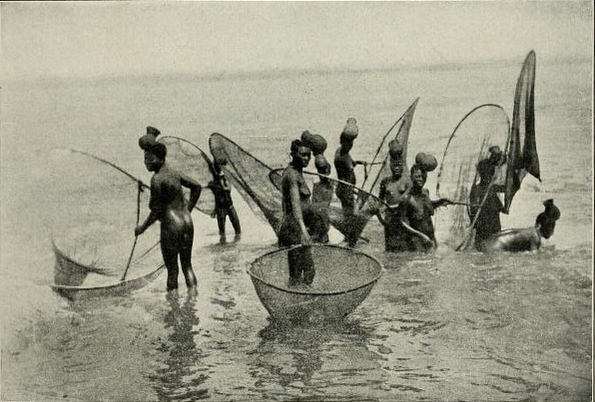-I wonder why Basa who seemed so afraid seemed so willing to follow the little servant. Why did he not jsut run?
-Sunga was quite dramatic in the way she punished him for not sharing his resources. She could have just made the fish disappear or just taken his voice, but instead she led him into her little lake town and gave him this big feast.
-We do not get to see how Basa reacts to having his voice gone. Was he too scared to protest? Was he furious but could not make a sound? And how did his family see it? Did they see the punishment as too harsh or fair for letting all of the fish rot?
-I like that there was a female lead in this story who took out justice on a man, that was refreshing
-It would be easy to convert this into a modern tale- it could be a family member who became a famous singer but did not share her wealth with her family, so a spirit comes and takes her voice so she can no longer sing
Story source: Notes on the Folklore of the Fjort by Richard Edward Dennett (1898).

I like that you ask so many questions in these reading notes. It's easy to find yourself summarizing, but the real joy in reading these generations-old stories is that they always leave profound questions in your mind. If you ignore those questions, the story doesn't always maintain it's whole impact. It can be easy to miss things when not being inquizitive.
ReplyDelete